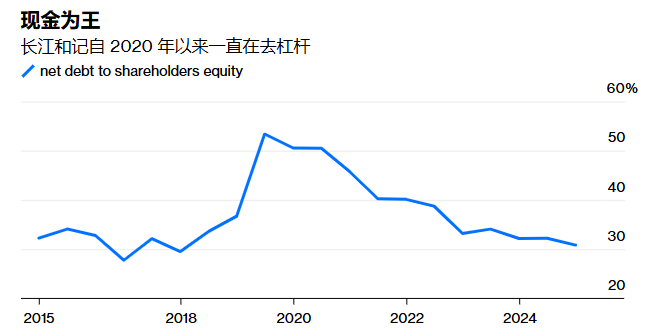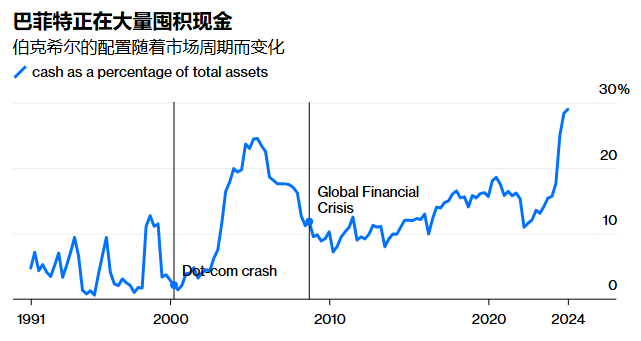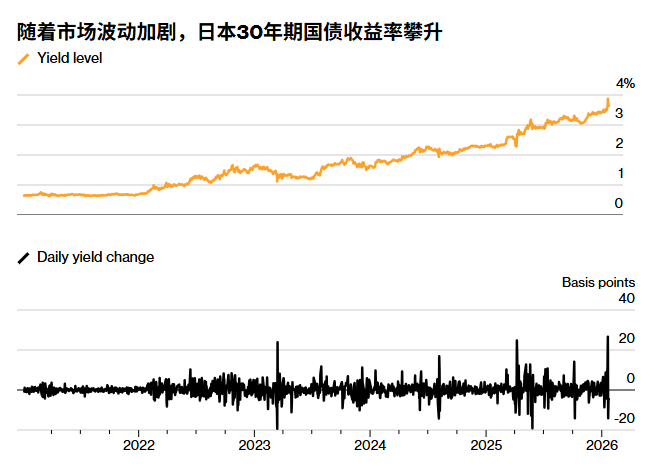One is known as the “Oracle of Omaha”, the other as “Superman”. Warren Buffett and Li Ka-shing are the two most respected investors in the East and the West. Now both are over 90 years old, with only a two-year age gap, yet they are both hoarding cash. Is this a sign of a financial recession?
The cash reserves of Berkshire Hathaway, owned by Warren Buffett, have become a hot topic in the market. The group is expected to have a cash reserve of 334 billion US dollars in 2025, accounting for 29% of its total assets, setting a new historical record.
The recent corporate actions of CK Hutchison Holdings Limited have only intensified speculation. The Hong Kong-based conglomerate has been steadily deleveraging since 2020. That year, it sold its European tower assets to Cellnex Telecom SA for 10 billion euros ($11 billion), and since then, the company has held onto cash. Once it sells the majority of its ports to a consortium led by BlackRock for $19 billion, it may be able to shed debt. CK Hutchison did not announce a special dividend at its earnings release last week.

Both companies have a long history of cashing out at the right time. As my colleague Nir Kaissar wrote, Berkshire’s cash allocation has varied greatly over the years, increasing when U.S. stock prices were high and being deployed during market crashes. The company’s investment in Bank of America can be traced back to the global financial crisis and has generated more than $30 billion in profits.
Li Ka-shing’s judgment on when to sell is also astonishing. In 1999, at the peak of the Internet bubble, he sold the controlling stake of British mobile phone operator Orange for about 15 billion US dollars. At the end of 2017, the businessman sold a skyscraper in Hong Kong’s Central Business District at a record price of 5.2 billion US dollars. Just over a year later, the office building real estate industry in Hong Kong reached its peak. Since then, this skyscraper has experienced a large-scale turnover; some floors taken over by mainland Chinese real estate developers thought they could outdo this superman, but ended up in trouble and had to sell at a low price.
It is certain that the cash reserves of this pair do not necessarily imply an imminent stock market crash. Given the huge amount of stocks they hold, even if they could predict the future, neither the seer nor the superman could ever exit at the market peak. Instead, they have to sell when there are still buyers. Nevertheless, it makes sense to keep funds sufficient because good deals may arise, most likely after a significant market correction.
To some extent, Berkshire’s cash reserves are more benign and easier to understand. The 94-year-old Buffett once explained that most of the company’s funds will be allocated to US stocks. We all know that the US stock market is expensive, especially when it comes to the valuation indicator favored by this legendary investor, that is, the ratio of the stock market value to the size of the US economy.

In contrast, while economists are still debating whether global trade has ended or is merely being restructured, Li Ka-shing is determined to sell the port division of Cheung Kong, which is cause for concern. What does he see?


